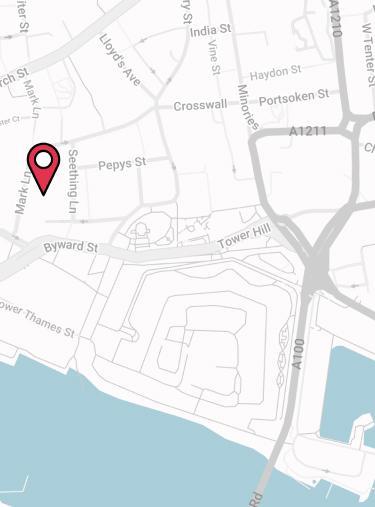Only 15% of Employees Truly Understand Pensions – How Employers Can Bridge the Knowledge Gap
Pensions are one of the most important financial tools employees have for securing their future, yet the 2025 Drewberry Workplace Pensions Survey reveals a major knowledge gap, which creates real risks.
Employees who don’t understand their pension options are more likely to contribute less, miss out on valuable employer contributions, and find themselves underprepared for retirement.
Employers have a crucial role to play in addressing this issue. Considering 72% of employees say they want more education on pensions from their employer, are you missing a golden opportunity to engage and empower your employees to make informed decisions, reduce financial stress, and improve overall workplace wellbeing?
1 In 2 UK Employees Don’t Know How Much To Save For Retirement
When employees don’t understand their Workplace Pension or pensions in general, they risk making poor financial decisions that can have long-term consequences.
Worryingly when asked ‘Do you know how much you need to save for a comfortable retirement?’ over half said they didn’t know.
- 33% said ‘No, but I have some plans’
- 24% said ‘I don’t know how much to save or how to achieve it’
- 24% said ‘Yes, and I know how to achieve it’
- 15% said ‘Yes, and I don’t know how to achieve it’.
Employees Don’t Understand Their Workplace Pension
It’s not just a lack of understanding when it comes to how much to save. We found that only 33% of employees claim to fully understand how their current Workplace Pension scheme works and 17% don’t even know who actually provides it.
Employees Don’t Know How Much Their Employers Are Contributing
Nearly half of employees (47%) admitted to not knowing how much their employer was contributing.
Employees Don’t Know Where Contributions Are Invested
And 63% also said that they don’t know where contributions are being invested.
Tax Relief Is A Mystery
Considering that the majority of employees don’t understand the basics when it comes to pensions, it was no surprise that 40% said that they didn’t understand the tax relief that comes with contributing into their workplace pension.
Are Your Employees Heading For A Pension Crisis?
When employees don’t understand how much they need or where their money’s going, a comfortable retirement becomes little more than a hope. Without clarity, it’s easy to under-contribute, miss valuable employer contributions, and lose out on tax advantages — all of which can seriously undermine long-term financial security.
This is especially concerning when you consider that the workplace pension is the number one income source employees are relying on for retirement. If they don’t fully understand how it works — or whether it’s on track — how can they be confident it will deliver the future they’re counting on?
Employees Face An Uncomfortable Retirement
The truth is, they can’t be confident and the majority aren’t, with 68% of employees admitting that they don’t think their workplace pension will be enough to live on.
Employees Are Worrying About Life After Work
When asked ‘What is your biggest worry for retirement?’ the top answers provided were:
- 24% said ‘Being unable to retire when I want’
- 21% said ‘Running out of money’
- 20% said ‘Not having enough money to maintain my current lifestyle’.
Financial Uncertainty Impacting Productivity
The UK is said to be heading for a “pensions crisis” within the next 20 years, with 54% of retirees (with a defined contribution pension) projected to be under-savers or financially struggling.
Given that the average pension pot in the UK is £20,077, but a pot of £63,000 is needed for a “minimum lifestyle”, employee fears of not being able to retire when they want to aren’t wholly unfounded. And with the cost of living only increasing, so is the pension amount required for later years.
And it’s not just a future problem. Financial uncertainty fuels stress today, with 80% of employees admitting it affects their productivity. That’s why pension education isn’t just a nice-to-have — it’s a vital part of supporting employee wellbeing and workplace performance.
72% Of Employees Want More Pensions Education From Their Employer
As the data has shown, pension understanding remains worryingly low among employees. But there’s a silver lining, people don’t want to stay in the dark. In fact, many are eager to learn more and take control of their financial future, and they are looking to their employer for help.
The Majority Of Employees Want To Learn
When asked ‘Do you feel your employer could do more to educate you about your company pension?’ the majority of employees said yes.
- 41% said ‘I’ve had some education but could do with more’
- 31% said ‘Yes, i’m not clued up at all’
- 20% said ‘No, they communicate well’.
What Employees Want To Know About
We asked employees what area of pensions they’d specifically like their employer to offer, with long-term financial planning, practical steps for retirement, and salary sacrifice topping the list.
Saving tax is clearly front-of-mind for employees when it comes to their pension. The good news is that by using the Salary Exchange method to contribute to your Workplace Pension, you can increase the size of employee pension pots – while cutting your National Insurance bill. It’s a simple, tax-efficient way to make contributions that benefits both the business and its people.
Matching Contributions Drive Employee Saving
Employers have a powerful role to play in shaping their employees’ retirement outcomes — and it goes beyond simply providing education. When asked whether they’d contribute more to their pension if their employer matched it, nearly half said yes.
This shows that practical support, like contribution matching, can be just as influential as guidance when it comes to encouraging long-term saving behaviour.
- Yes (48%)
- No (6%)
- Only if I could afford it (40%).
Knowledge Is Power
Employees who understand their pension benefits are more likely to contribute more and take advantage of employer-matching schemes. This not only improves their retirement prospects, but also enhances the effectiveness of your pension scheme and boosts employee engagement.
Prioritising pension education within the workplace can help alleviate employees pension concerns, along with a strategic approach to contributions. For instance, using the Salary Exchange method is a cost-effective way to increase employee pension pots while saving National Insurance contributions for both your business and your team. It can also lead to a happier and more engaged workforce.

With the majority of employees worried about not being able to retire when they want to, it’s more important than ever to prioritise engagement and understanding of your Workplace Pension scheme.
Richard Noble
Senior Consultant, Employee Benefits
How To Bridge The Knowledge Gap
As an employer, you need to go beyond simply offering a pension scheme – you need to actively engage employees and ensure they fully understand its value.
- Make Pensions Education A Standard Part Of Onboarding
New employees should receive detailed information about their Workplace Pension from day one. Include a dedicated pension section in onboarding materials, or host a pension induction session to explain the benefits and how to maximise contributions. - Use Technology to Simplify Pension Management
Many employees don’t check their pensions regularly or update their contributions. An employee benefits platform can streamline this, helping staff track their pension and stay informed. - Offer Incentives for Pension Engagement
Encouraging employees to actively participate in their pension scheme can be as simple as offering incentives. Provide employer-matching schemes that reward employees for increasing their contributions, run pension challenges or quizzes, or offer payment options via Salary Exchange. - Communicate Regularly About Pensions
Don’t limit pension discussions to annual statements. Use regular emails, Q&A sessions, and case studies of employees who’ve successfully grown their pension savings to inspire others. - Make Pensions A Core Part of Financial Wellness Programs
Pensions should be part of a broader financial wellness strategy that includes guidance on savings, budgeting, and investment planning. Try offering workplace financial education programs that include pension literacy. You can also partner with financial advisers to provide one-on-one financial planning sessions for employees. - Ensure Transparency About Pension Contributions
While 61% say they want their employer to pay more than the statutory minimum, 47% don’t know the exact percentage their employer contributes? If your business is proud to offer enhanced pensions, are your employees even aware of it?
Gaining A Competitive Advantage
It’s not just good to communicate your pension to existing staff. A strong pension programme can also make your company more attractive to jobseekers. With 84% of employees stating that a good pension scheme is important when choosing an employer, and 58% saying they’d actually prefer a larger pension in place of other benefits, investing in pension literacy can set you apart in the job market.
What Happens If Employers Ignore the Pension Knowledge Gap?
Employers who fail to address the pension knowledge gap risk having a workforce that is unprepared for retirement. This can lead to:
- Increased financial stress among employees, affecting productivity and engagement
- Employees delaying retirement due to insufficient savings, leading to workforce stagnation
- A competitive disadvantage in attracting and retaining talent, as pension benefits are a key factor for job seekers.
Seeing as 58% of employees told us they’d rather receive higher pension contributions in place of other company benefits there’s never been a better time to start prioritising knowledge about your scheme.
It’s Time To Take Action On Pension Education
A well-educated workforce is a financially secure workforce. Investing in pension education today will pay dividends in the form of employee engagement, retention, and long-term financial stability. The time to act is now – employers who lead the way in pension knowledge will not only strengthen their teams but also build a workplace that values financial well-being as a core component of success.
We know pensions are complicated beasts to tackle. With so many options to consider, it does become overwhelming at times. We live and breathe Workplace Pensions, so give us a call on 02074425880, email help@drewberry.co.uk, or submit an enquiry to talk through your options with one of our friendly advisers.
Why Speak to Us?
Employee benefits can be a headache. But our specialists do this day-in, day-out, offering first class service when you need it most. Here’s why you should talk to us:
- Award-winning independent employee benefits consultants, working with leading UK insurers and benefit providers
- Assigned specialist on hand to help – every step of the way
- 4090 and growing independent client reviews rating us at 4.92 / 5
- Authorised and regulated by the Financial Conduct Authority. Find us on the financial services register
- Claims support when you need it most.
Contact Us
125-135 Preston Road
Brighton
BN1 6AF
Cookies
Drewberry™ uses cookies to offer you the best experience online. By continuing to use our website you agree to the use of cookies including for ad personalization.
If you would like to know more about cookies and how to manage them please view our privacy & cookie policy.









